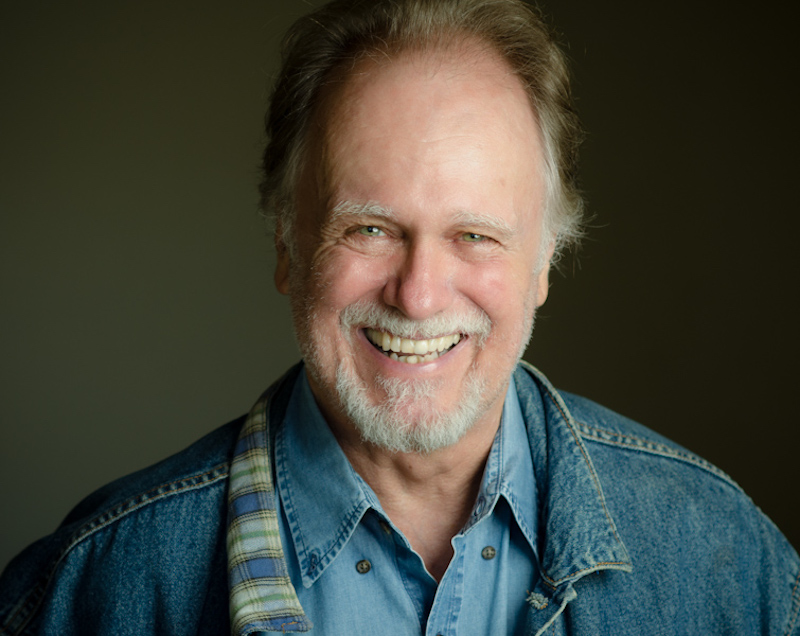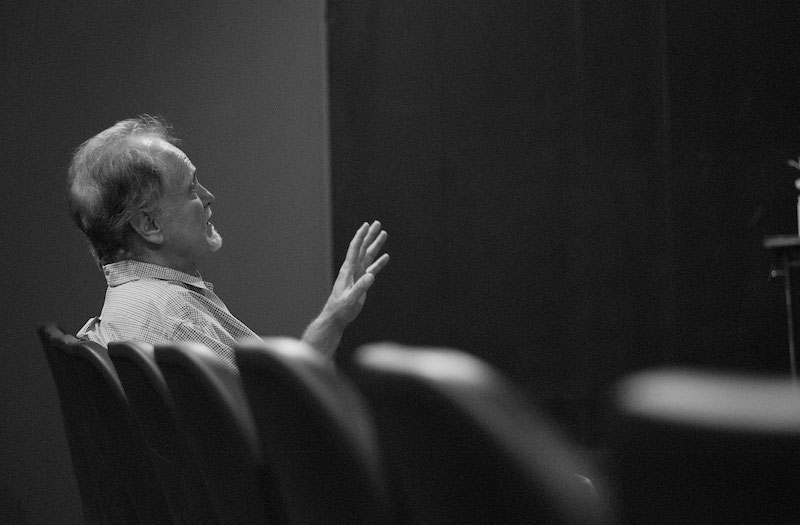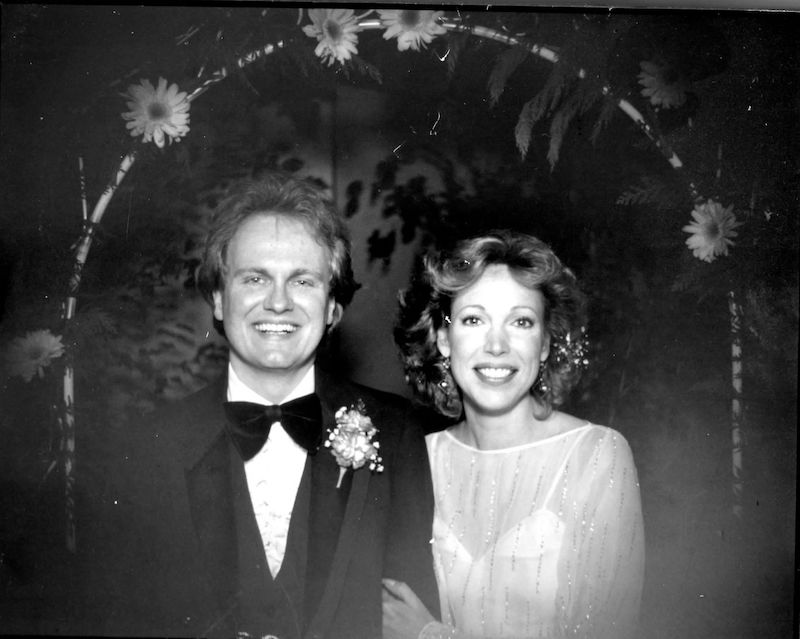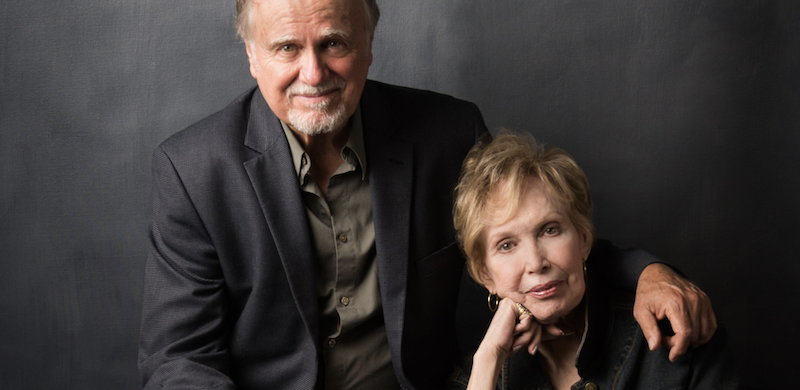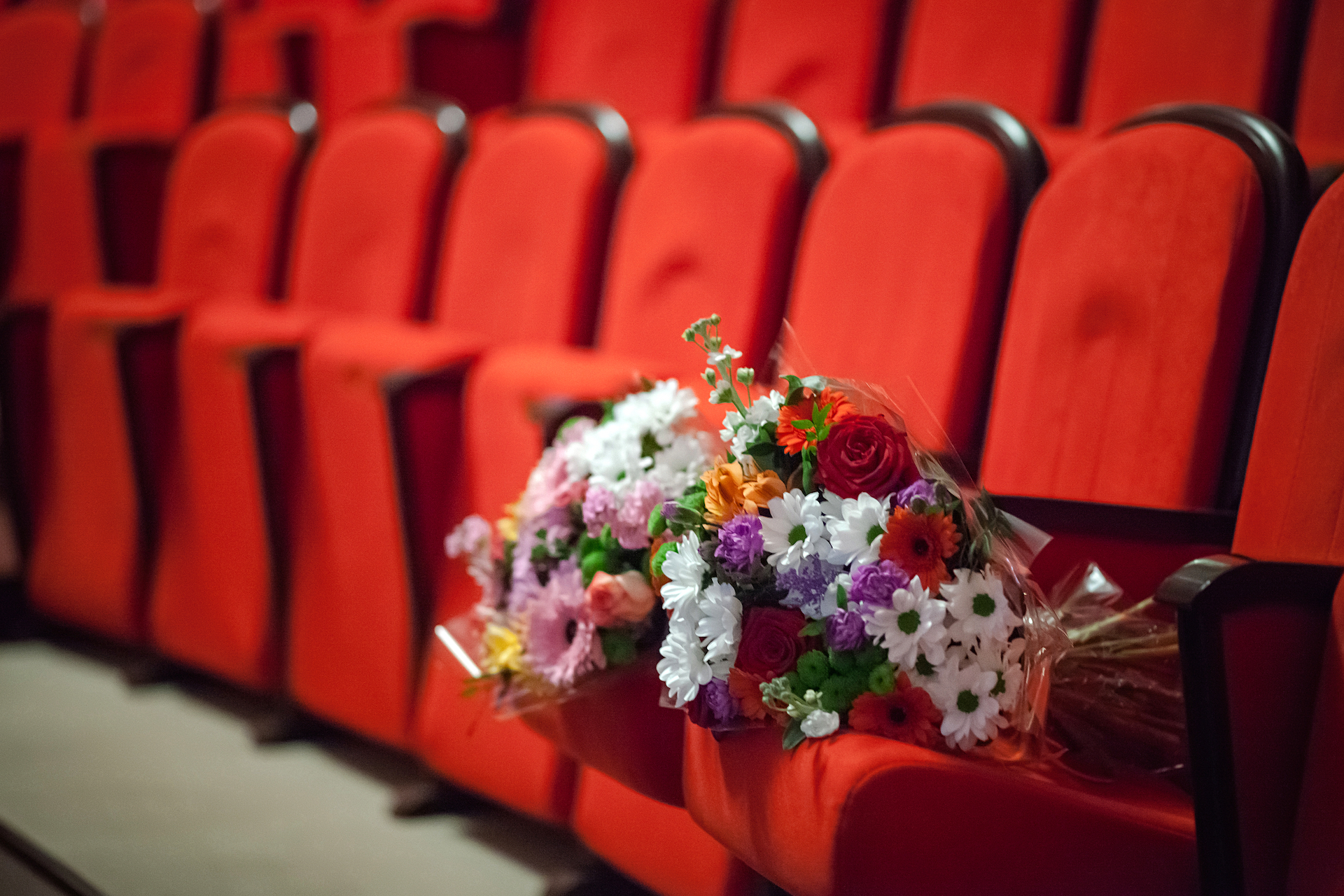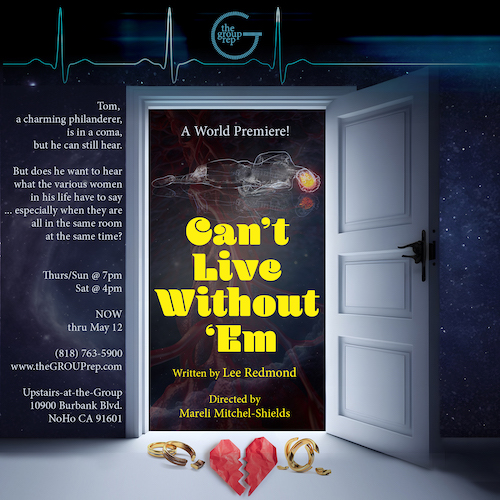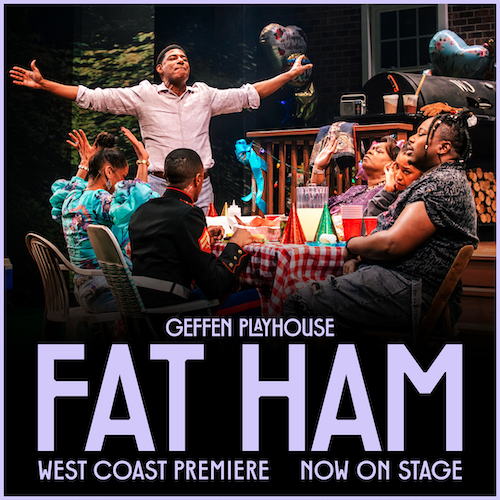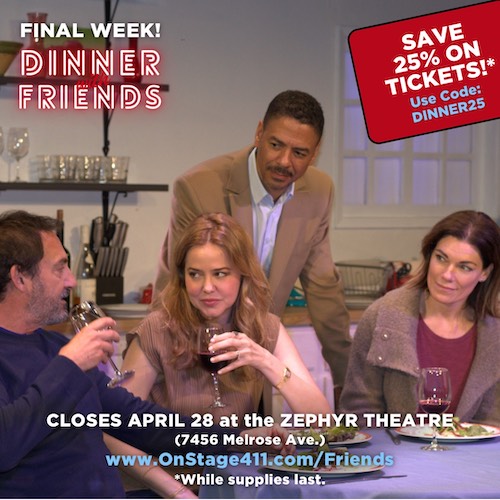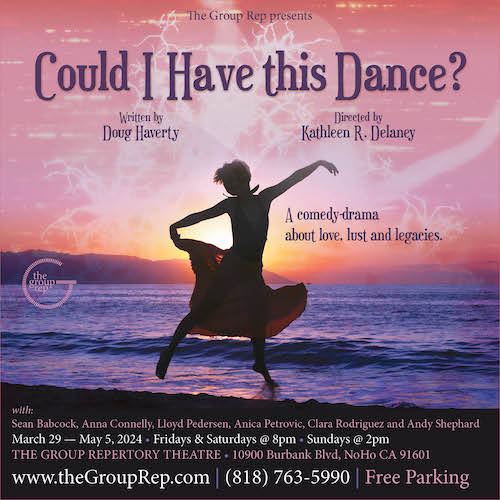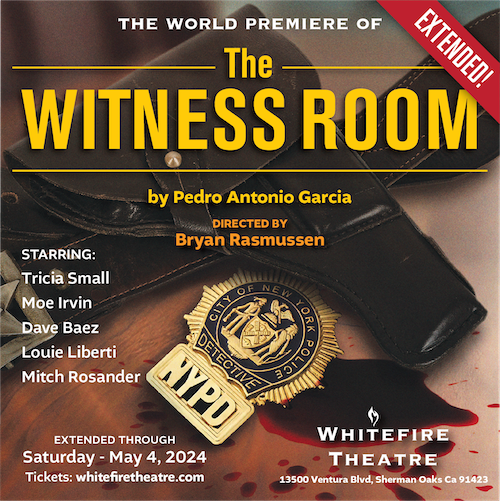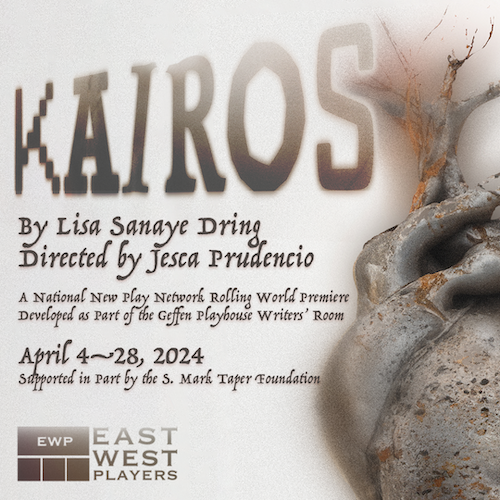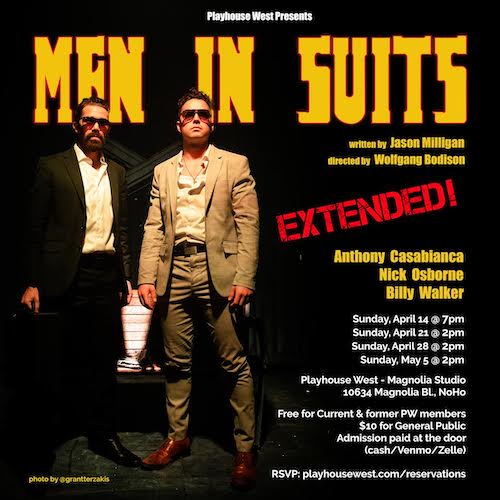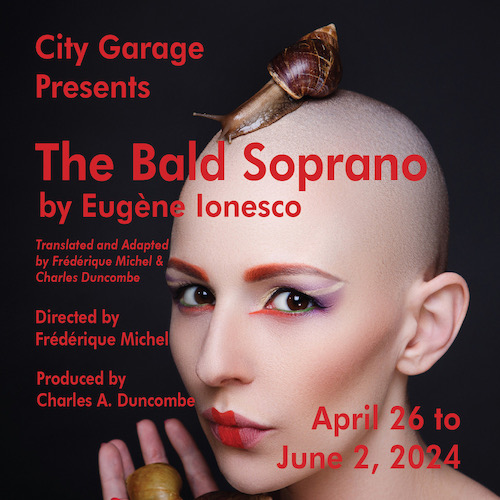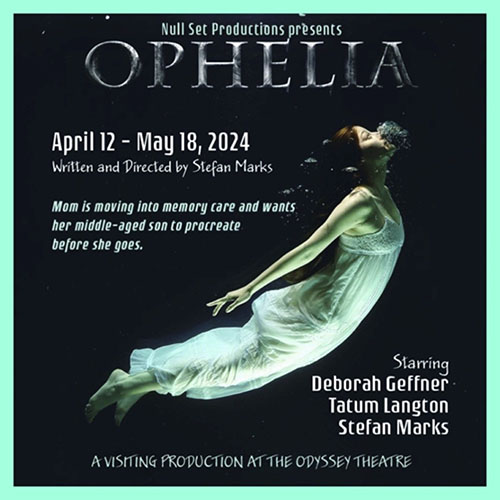
The Lion of Victory Boulevard
By Steven Leigh Morris
Tom Ormeny died on July 16 from a rapidly growing cancerous brain tumor. He was co-founder of the Victory Theatre Center with his wife, Maria Gobetti.
Since 1971 Tom and Maria produced, directed and/or acted in over 100 productions, including The Miss Firecracker Contest, On the Money, The History of Fear, Talking Things Over With Chekhov, Wishing Well, American Iliad, and Tom’s own play, Life on the Line.
His film and television credits include Primary Colors, Gang Related, Mad Men, Grey’s Anatomy, with soap opera appearances in Days of Our Lives and General Hospital.
Tom was instrumental in forming Los Angeles Municipal Promotions (LAMP) that successfully lobbied for the “one percent for the arts” tax for the City of Los Angeles. He served on the actor/producer side of the Actors’ Equity Review Committee for the Los Angeles 99 Seat Theatre Plan. He served eight terms as the president of the Los Angeles Theatre Alliance and became President Emeritus of the Board of Governors of Theatre LA.
A Friend in Deed
It took Maria several weeks before she could emerge from her grief to talk about Tom. We spoke by Zoom over the weekend.
I’ve known both since the 1990s, when I started reviewing theater for the L.A. Weekly, and they were often a fixture in the lobby on opening nights at the Victory Theatre. But that wasn’t really a friendship — it was a cordial, professional relationship enshrined in respect.
That relationship became warmer in 2015, when I was hired as Executive Director of LA STAGE Alliance, and Tom was a fixture on the Board. I say “fixture,” because he’d been that organization’s president for its first eight years, 1975 to 1983, and he didn’t leave until the organization’s collapse in 2021. Maria noted that he let his frustrations with the organization be known, but he refused to leave.
“He wanted them to have to face him in the room,” Maria noted. “It didn’t make much difference, but he was not a coward. He stood firm for what he believed was right. He had integrity. And I loved that about him.”
During my fleeting residency at LASA, and after, Tom would invite me to lunch at the Coral Café diner in Burbank (his favorite hangout) where we’d regale each other with our respective joys and annoyances. He was soft-spoken, at least with me (Maria has a more expansive perspective), with a warm smile wrapped around a cloak of indignation — indignation at the state of the world and the state of LA theater, which perennially drove him nuts. He would work himself into a frenzy of agitation that would culminate in one of his wry smiles, which would often lead into a chuckle.
I can’t pretend that I’m capable of writing anything approaching an objective obituary because, for me, he was bedrock of support, and I adored him for who he was, what he’d endured with such grace, and what he believed in because of it.
In the summer of 2022, he called to tell me they’d found cancer in his brain; he was stoic about what that meant. He said his doctors gave him a year or two. “Maybe I’ll have five years, maybe five months. They don’t really know. They say they don’t really know.”
From Hungary to Eternity
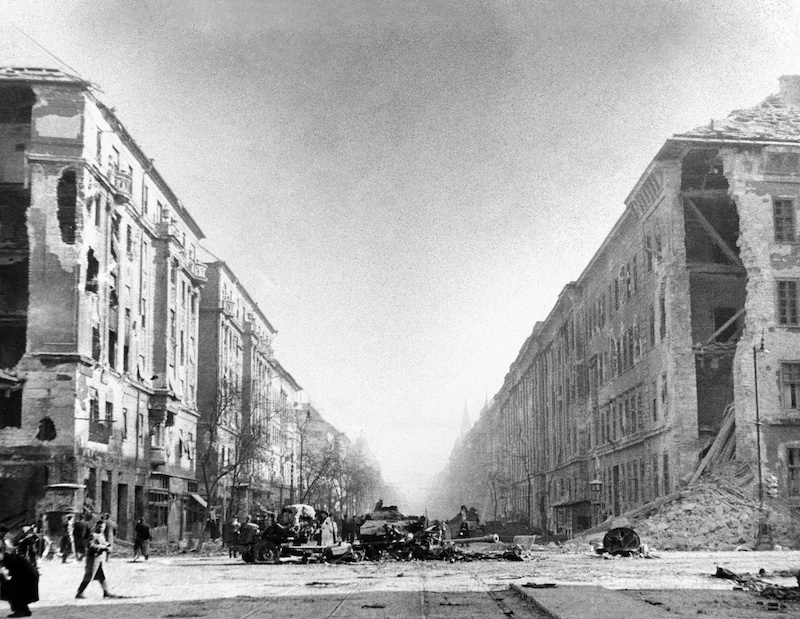
The 1956 Hungarian Uprising A destroyed Russian tank and other vehicles in front of the Soviet Kilian Barracks at Francis Boulevard Budapest.
Tom was born on May 17, 1946 in Budapest. At the time of his birth, Hungary was engulfed in one of the bloodiest cataclysms of World War II, having invaded the Soviet Union at the request of Nazi Germany. When Tom was an infant, the Soviet Union was pushing back hard. By the time Tom was 3, Hungary was a Communist-occupied nation, dubbed by the Soviets, “The People’s Republic of Hungary.”
Tom grew up in a Catholic theater family, regarded with suspicion by the Communists. His theatrical and principled parents, particularly his mother Éva Szörényi, a famous actress in that part of the world, became a target of the secret police.
As Maria puts it: “[Tom] got PTSD during this time and had it for the rest of his life. He was a child when he saw one man murdered. He saw another young man, 16 years old, about to be hung. [Tom’s father] ran down and said, ‘Don’t do this, he’s a kid!’ And they stopped. The whole family knew what they believed in. They really had courage and integrity.”
In 1956, as Russian Premier Nikita Khrushchev was sending the Red Army into Hungary to quell local uprisings (a.k.a The Hungarian Revolution of 1956), the entire family (Tom, his mother and father, two brothers, his aunt, six children in all) fled over land for Austria. Tom was 10 at the time. “They got caught once,” Maria explains. “And the guy let them go because Eva was a big star. They heard later that he paid for it with his life.”
The family went from Austria to Connecticut to New York. When Tom’s mother landed a role in the 1950s CBS soap opera, Guiding Light, Tom’s immediate family came West to Los Angeles. Tom attended Crespi High School, an all-boys Catholic school in Sherman Oaks, before doing undergrad work in Santa Clara. He returned to Southern California to earn his MA at UCLA, and to make his own way as an actor.
“He started to get work. He produced and was in an Equity production, way back, in which Bill Edwards was [peripherally] involved,” Maria says.
(Edwards was Daily Variety’s theater critic and columnist for 20 years and a founding member of the LA Drama Critics’ Circle. Edwards became legendary for sitting in the front row of a show he was reviewing and knitting throughout the entirety of the performance.)
Maria was teaching at UCLA and also starting to land acting roles before she met Tom.
After several long-term liaisons with men — one, an art director who turned out to be a drug addict (“That just didn’t work for me.”); and then some guy who turned out to be unfaithful and “just wasn’t very nice, though he seemed nice at the beginning, he was sexy”; and yet another art director who’d been married four times (“I just didn’t want to be anybody’s fifth wife”), Maria had resolved that she was through with men.
Until she met Tom in 1970. He was 25. She was 30.
“We met in Desire Under the Elms.”
Naturally.
“It was in a little theater on Melrose, Melrose Place. Three things about Tom: He was cute, I really liked him, and he could talk. He could really talk in depth about anything. On our first date, we talked for three hours, and I went home I thought, ‘I’m in love,’ and then I thought, ‘No, I’m not going to marry an actor.’”
And she didn’t. Not for ten years, anyway.
In the interim, they found a building at Western Avenue and Hollywood Boulevard. “There was an AA group there and the roof leaked.” Tom was a handyman and carpenter, and that was the start of the Victory Theatre acting studio.
Then they built their theater complex (two theaters) on Burbank’s Victory Boulevard, in a building they leased. Their theater was and remains dedicated to producing only new plays, starting with Beth Henley’s The Miss Firecracker Contest, which emerged from a scene Henley performed in the Studio. The play, the Victory’s first effort, found its way to New York. The Victory has now been producing for 44 years.
In 1980, Tom and Maria got married on the stage they’d just built. Maureen McGovern sang. Steve Tobolowsky brought in his band. “There was food next door in the smaller theater.”
The theater was their church, and their child.
“We decided we would try to have a child and I was like 40, and it just never took. We had a theater. The Victory became our child.
Cats and Dogs
“Oh, my God, we fought like mad,” Maria confesses. “Through our entire marriage. Right to the end.” They fought over everything, except their vision of theater. That was indisputable.
“Our next door neighbor once told me, ‘Every morning, we can count on waking up to the sunlight spreading across the sky, to the chorus of birdsong, and the sounds of Tom and Maria yelling at each other.’”
Early in their relationship, they went into therapy because they fought so much. “We had control battles. But we got through that phase.
Early in their marriage, they visited Rome and went to St. Peter’s Cathedral. “The first thing I saw was a painting of Pontius Pilate with his finger pointing down at me, and I said “Ugh” very loudly and Tom said ‘Maria!’ I was just so rebellious, and I didn’t wear a bra. Tom finally sat down and I made some smart-ass remark about the paintings, and he said, ‘Look, you check out the church and I’ll be outside.’ And he toured Rome and we finally met up again — because he couldn’t put up with me.
“Tom was much more sophisticated about religion. He had a father who said, ‘don’t worry about it, take it as it comes.’ That balanced me out a bit. We balanced each other really well.”
It was particularly stressful for Maria when Tom was on steroids to reduce the swelling in his brain. He would spend money like there was nothing to lose, Maria reports.
“Near the end, with the drugs, he got so angry and impulsive — then we got the drugs under control. But the yelling really didn’t bother me. We’ve been yelling our whole lives. It was just more of the same, just a little more intense.”
When he made his last public appearance at the Stage Raw Theater Awards in April, 2023 (he and Maria received the journal’s Career Achievement Award), Tom was frail, walking with a stick. Once in the spotlight, he beamed and spoke with humility and affection and gratitude.
“At the end he couldn’t talk, he couldn’t hear the TV anymore, and he said, ‘I’m all alone,’ and he was. So finally I got him some paints, and he did some lovely work. He was multi-talented — he was Renaissance man, he wrote poetry, he could act.”
Maria says that it was joy to cast him in a play, because she didn’t have to worry about him. He had charm and passion as an actor, which made him ideal for a lot of parts.
“But just try to direct your husband. I’d give him a note. He’d look at me and his nostrils would flare, as though I’d said something that smelled bad, and I’d say . .‘Tom?’ And he’d say, ‘Okay, I’ll do it if you think it’s right.’ And he said it so regally.”
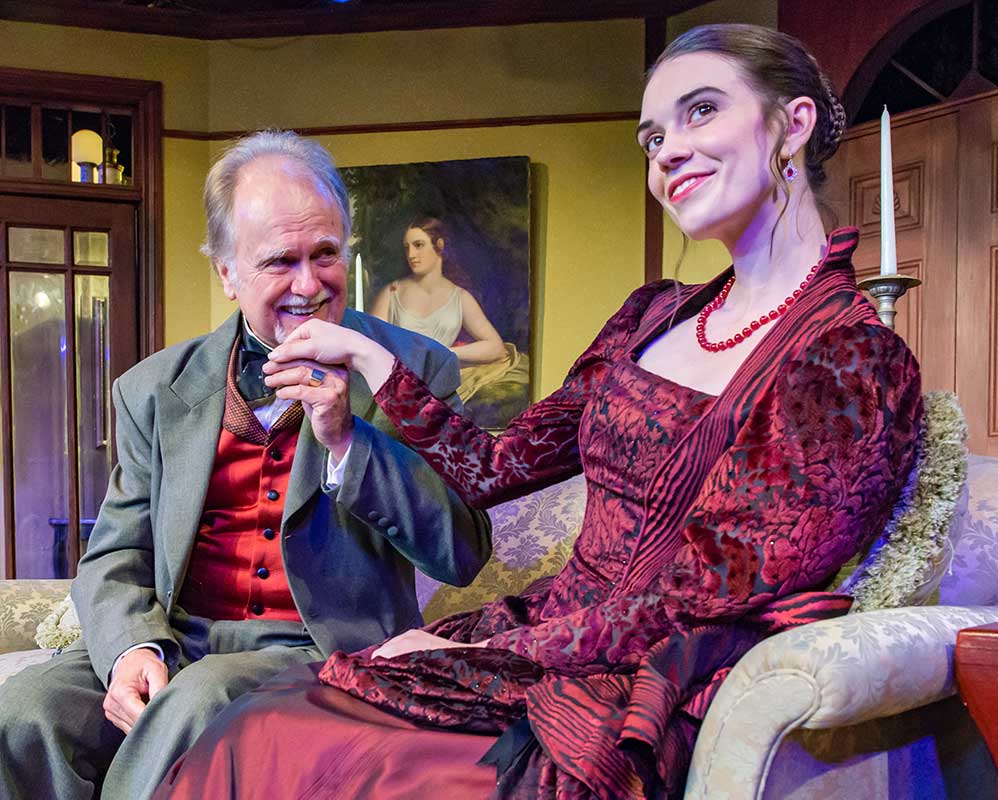
Tom and Kimberly Alexander in Jon Klein’s “Resolving Hedda” (2017) at the Victory (Photo courtesy of Victory Theatre Center)
Maria says they were meant to be together. They were real soul mates.
“I didn’t think of myself as a wife, but as a director and this and that. And after he was gone, I realized, I don’t think I bought a lamp without thinking, would he like it or not? I bought food that he would like. I really was a wife, and he really was a husband to me. We really were all of that to each other, but I really didn’t think about [those aspects] much. I thought about it a lot, after he was gone.”
When Assembly Bill 5 (a labor-backed proposal targeting the Gig economy that ballooned the Victory’s cost of a single production from $20,000 to $70,000) was made law in 2020, “I looked at Tom and said, ‘What are we going to do?’ He said, ‘We’re just going to keep doing what we’ve always done. We’re going to do new plays, good new plays, and we’re going to do them well.’”
Coming Home
The most recent hit at the Victory was a production of Tony-Award recipient (Best Play for Side Man) and Pulitzer Prize finalist Warren Leight’s Home Front, the story of an interracial marriage. Not only did it receive a glowing review from Charles McNulty in the LA Times, it was the first time the Victory had seen Black audiences show up en masse. Tom and Maria were thrilled. It was an emblem of the inclusivity they’d been working towards.
Referring to an earlier remark she’s made about how she and Tom “balanced each other,” I asked Maria what he had that she didn’t.
“He had vision,” Maria replied. “He wanted a theater. I would never have a done a theater without him. On the other hand, he had PTSD, and he was afraid of systems and governments, and I wasn’t. He was always waiting for the secret police to bust in. He didn’t talk about it much, but I think it was hard for him. He opened up to me, but he didn’t tell me a lot. Nobody knew what PTSD was back then. It wasn’t even thought about. So he was always fighting that. It would come upon him, then he would shake it off — he was very brave. He was loyal, loyal to his friends.
After a moment of reflection, Maria says, “I loved him. When he got really sick he asked me about the theater’s future, I said, ‘Yes, I’ll keep it going.” And that calmed him. ‘Yes, good,’ he said. I know that’s what he would want me to do. I think I have enough money right now to do two shows.”
A service is being planned for Tom on Sunday, October 22, 4 pm, at the Victory Theatre Center, 3326 W Victory Blvd, Burbank, CA 91505.


